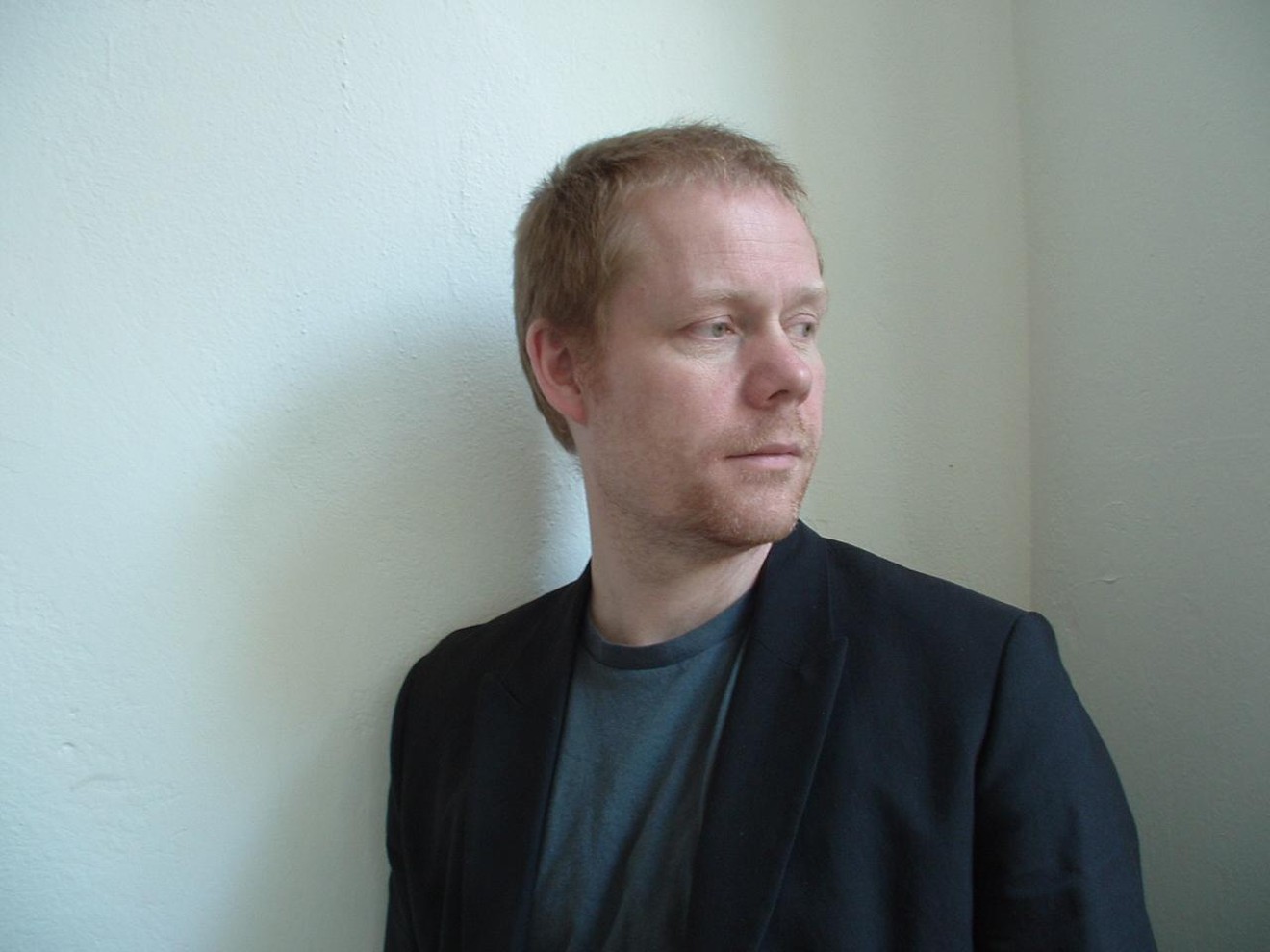This Saturday, October 13, Richter will perform for the first time in Miami at the Arsht Center. He recently spoke with New Times about his reasoning for hitting the road again, politics, and his ironic relationship with Sleep.
New Times: Because of your heavy workload, it was surprising to see a listing for a Max Richter concert. So, first off, how often do you tour?
Max Richter: Yeah, it’s quite rare. Normally when there’s a new record out, I’ll play a handful of shows. And over the last couple of years, we’ve played some Sleep shows. We’ve done 18 of those over the last three years. That’s pretty much it. Basically, the center of my life is
And what was the impetus to do so?
I guess it’s really kind of to do with the political and social aspect of The Blue Notebooks. I felt like there was a kind of resonance with where we’re at at the moment. The Blue Notebooks has its origins in the 2003 buildup to the Iraq War. The impetus for making the piece was that politics was departing from reality and turning into a branch of fiction. And, you know, here we are.
Considering what’s been happening the past two years, are we in some sort of bizarre parallel science-fiction universe?
Well, I think what’s interesting is that our sense of what’s normal is being shifted. The political sphere has become so extreme that we tolerate things that in earlier times would’ve been intolerable. I think that’s a really interesting situation. Music is a social project; it’s a part of society talking to itself. It’s a way to have conversations. I wanted to revisit Blue Notebooks, and Infra actually, which is the other piece we’re playing. They both have that dimension.
How different is composing for film and TV scores from recording an album that is completely born from your brain?
Yeah, it is different, but I really enjoy that difference. You know, working on a solo project is a very solitary activity; it’s me just sitting in a room, sort of scribbling away. Whereas working on a film or TV project, that’s a collaboration. It’s a thousand conversations about how to use music in a kind of creative and fruitful way, as part of this more complex dynamic with the acting and the cinematography and the storytelling and all these things. There’s a sort of puzzle-solving challenge in that, in a collaborative way, and I really enjoy it."
You’ve said in the past that music, especially your brand of
For me, I have a really particular set of intentions when I’m making a piece. In a way, it’s a theory; I’ve proposed a theory when I make a piece. Then, when it connects to the listener and with the audience when we play it live, then in a way, the audience tells me what I’ve made in a different way. It becomes a dialogue then; it becomes a conversation. I get all this kind of information back. When we listen to a piece, we’re bringing our biography to it. The meeting point between the piece and the biography, that’s the really interesting part, I think.
Do you ever listen to Sleep, to, you know, sleep?
“Well, I can’t sleep when there’s music on. [Laughs] It’s the only time I can’t sleep because I’m actually a really good sleeper. But if there’s music playing, my brain is in sort of analytic mode, and I can’t really switch off. Really one of the starting points of Sleep is that as a culture, we’re really sleep-deprived. Our moments of rest are being eroded by our continuous screen life. So I wanted to create a landscape for people to rest into. But, yeah, I can’t personally use it, I’m afraid.”
What impact did your early work with '90s electronica have on you in blazing your own path with your brand of postclassical music?
I guess I was always interested. Even working as a teenager, I would be practicing my Mozart and Beethoven and building synthesizers. These sort of things always flowed together for me. When I finished university and conservatory and all of that formal study, I felt like the classical-contemporary music world was pretty inward-looking, and for all its kind of experimentalism, it was very stuffy. At the same time, there was this explosion of creative electronic music, sort of left-field electronica, I guess they called it at the time — people like Future Sounds of London, Chemical Brothers, Orbital, the Orb, all of those first-generation electronica bands. I just felt like that was a really creative space. And as a sort of nerdy composer, the programming aspect of that was really fascinating. I got involved with those people because I thought it was a really fascinating music language.
Then I started to make my own work, which incorporated some of those elements, some of those ideas — mostly the ideas of the studio being the instrument in some way, which is a very un-classical way to look at it.”
Finally, what would you like people to know about you that perhaps no one ever asks?
I’m quite good at making coffee. [Laughs] I feel like I could run a half-decent café.
Max Richter. 8 p.m. Saturday, October 13, at Adrienne Arsht Center for the Performing Arts, 1300 Biscayne Boulevard, Miami; 305-949-6722; arshtcenter.org. Tickets cost $30 to $75 via arshtcenter.org.











